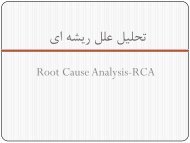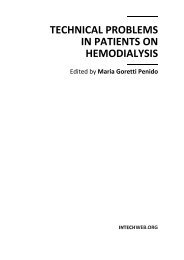new insights into the prevention and treatment of bulimia nervosa
new insights into the prevention and treatment of bulimia nervosa
new insights into the prevention and treatment of bulimia nervosa
Create successful ePaper yourself
Turn your PDF publications into a flip-book with our unique Google optimized e-Paper software.
Treatment Strategies for Eating Disorders in Collegiate Athletics<br />
widely been used for depression; however, IPT has garnered some empirical support as a<br />
<strong>treatment</strong> modality for Bulimia. IPT takes longer for symptom relief; however, it should be<br />
considered an alternative to cognitive-behavioral <strong>the</strong>rapy. IPT is designed to improve<br />
interpersonal functioning <strong>and</strong> self-esteem, reduce negative affect, <strong>and</strong> in turn, decrease<br />
eating disorder symptoms (Tan<strong>of</strong>sky-Kraff & Wilfley, 2010).<br />
With <strong>the</strong> bulimic client, interpersonal psycho<strong>the</strong>rapy seeks to help <strong>the</strong>m identify <strong>and</strong> modify<br />
current interpersonal problems that are hypo<strong>the</strong>sized to be maintaining <strong>the</strong> eating disorder<br />
(Wilson, Grilo, & Vitousek, 2007). Interpersonal <strong>the</strong>ory identifies relationships <strong>and</strong> social<br />
roles as critical components <strong>of</strong> psychological adjustment <strong>and</strong> well-being. In <strong>the</strong> case <strong>of</strong><br />
Bulimia, interpersonal <strong>the</strong>ory suggests that it occurs in <strong>the</strong> social <strong>and</strong> interpersonal context,<br />
<strong>and</strong> that <strong>the</strong> onset, response to <strong>treatment</strong>, <strong>and</strong> outcomes are influenced by <strong>the</strong> interpersonal<br />
relationship between <strong>the</strong> client <strong>and</strong> significant o<strong>the</strong>rs (Tan<strong>of</strong>sky-Kraff & Wilfley, 2010).<br />
Collegiate student-athletes have a unique context which inadvertently supports Bulimia<br />
symptomatology, body image issues, ideal vs. real sport weight, peer comparisons, <strong>and</strong><br />
coach/judges’ evaluations. Interactions with coaches, teammates, parents, <strong>and</strong> o<strong>the</strong>r athletic<br />
personnel (e.g., athletic trainers) could be <strong>the</strong> focus <strong>of</strong> <strong>the</strong> IPT in addressing <strong>the</strong> influence <strong>of</strong><br />
<strong>the</strong> social environment on <strong>the</strong> bulimic symptoms.<br />
2.3.3 Dialectical behavior <strong>the</strong>rapy (DBT)<br />
Dialectical behavior <strong>the</strong>rapy was originally developed by Marsha Linehan to treat<br />
borderline personality disorder or <strong>the</strong> “difficult-to-treat clients”. It is based on a dialectical<br />
worldview that stresses <strong>the</strong> fundamental interrelatedness or wholeness <strong>of</strong> reality <strong>and</strong><br />
connects <strong>the</strong> immediate to <strong>the</strong> larger contexts <strong>of</strong> behavior (Safer, Telch, & Chen, 2009). It is<br />
based in cognitive-behavioral <strong>the</strong>rapy with an emphasis on emotion regulation. The primary<br />
dialectical strategy is to focus on what is <strong>the</strong> balance between acceptance <strong>and</strong> change (Safer,<br />
Telch, & Chen, 2009). Implementing validation <strong>and</strong> problem-solving strategies allows <strong>the</strong><br />
individual to be challenged <strong>and</strong> supported regarding <strong>the</strong>ir current situational context. DBT<br />
has shown promising results with eating disorders, particularly Bulimia <strong>and</strong> binge eating<br />
disorder. Learning to control one’s emotions could directly impact <strong>the</strong> incidence <strong>of</strong> binges<br />
<strong>and</strong> <strong>the</strong> loss <strong>of</strong> control experienced during <strong>the</strong> binge episode.<br />
Biosocial <strong>the</strong>ory is <strong>the</strong> underlying <strong>the</strong>oretical construct for dialectical behavior <strong>the</strong>rapy. It<br />
emphasizes affect regulation, highlighting that when applied to eating disorders, intense<br />
affect is a frequent precursor to binge eating, which may provide a means, albeit<br />
maladaptive, <strong>of</strong> regulating emotions (Chen & Safer, 2010). When considering <strong>the</strong> collegiate<br />
student athlete, it is conceivable that disordered eating behaviors may become negatively<br />
reinforced (i.e., as escape behaviors) or result in secondary emotions such as shame or guilt,<br />
which <strong>the</strong>n may signal fur<strong>the</strong>r disordered eating behaviors (Chen & Safer, 2010). Biosocial<br />
<strong>the</strong>ory postulates that an invalidating environment <strong>and</strong> an emotionally vulnerable<br />
individual may inadvertently provide intermittent reinforcement <strong>of</strong> emotional escalation<br />
over time (Chen & Safer, 2010). For collegiate athletes an invalidating environment could<br />
include weight-related teasing or over concern with weight by peers, coaches, <strong>and</strong> family<br />
(Chen & Safer, 2010). DBT is useful with comorbid disorders such as, depression<br />
symptomatology, particularly suicidal ideation, <strong>and</strong> borderline personality disorder.<br />
2.3.4 Medication management<br />
Eating disorders at times should involve psychotropic medication (e.g., medications used to<br />
treat psychological disorders such as antidepressants) <strong>and</strong> monitoring by a psychiatrist or<br />
physician with specialized experience. It is critical to underst<strong>and</strong> that <strong>the</strong>se medications should<br />
41


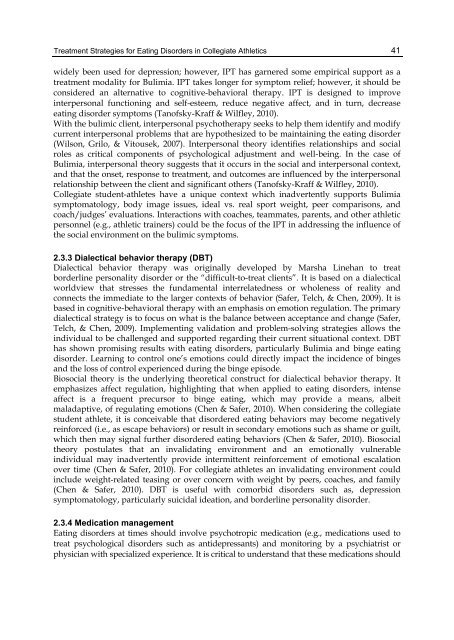





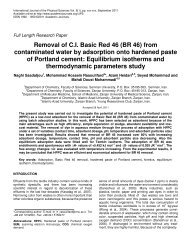

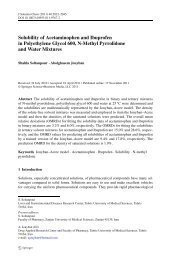
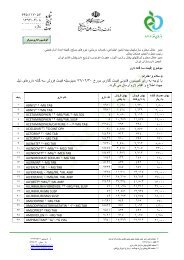

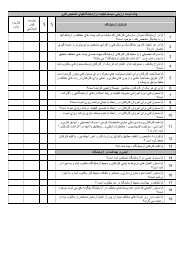
![focuspdca.ppt [Compatibility Mode]](https://img.yumpu.com/22859457/1/190x146/focuspdcappt-compatibility-mode.jpg?quality=85)
